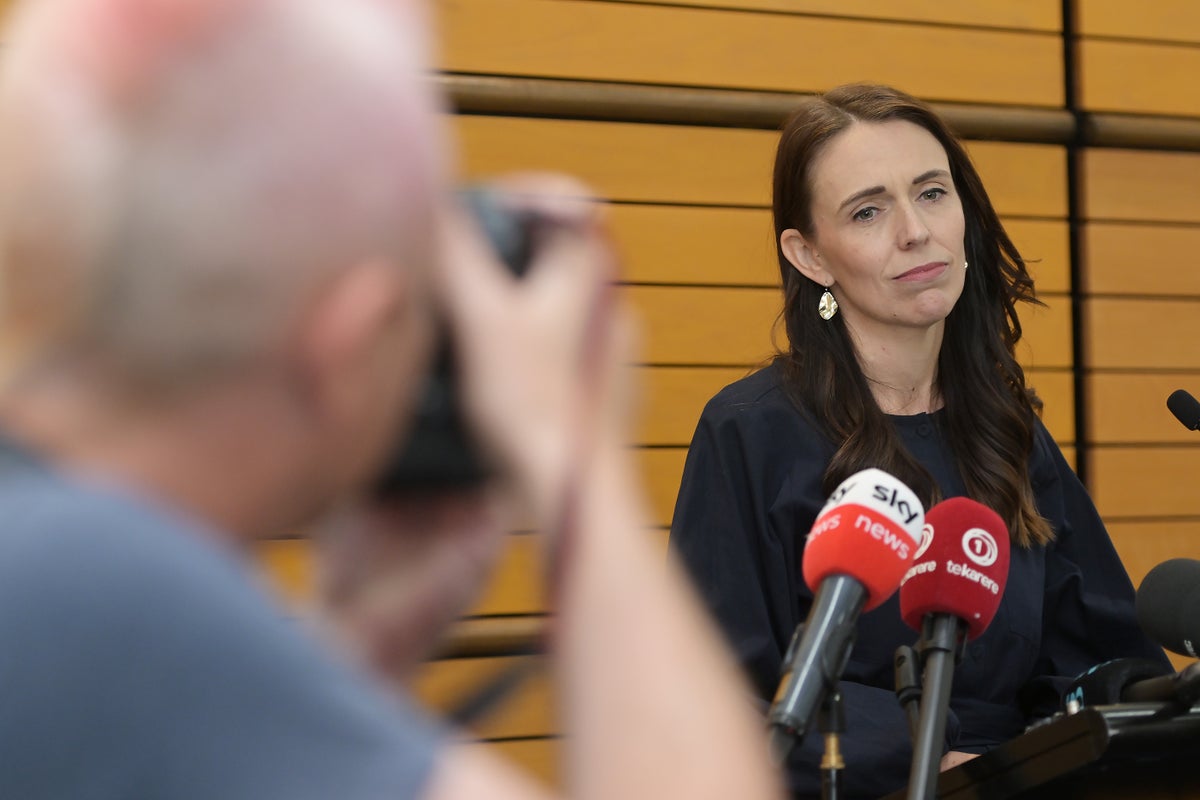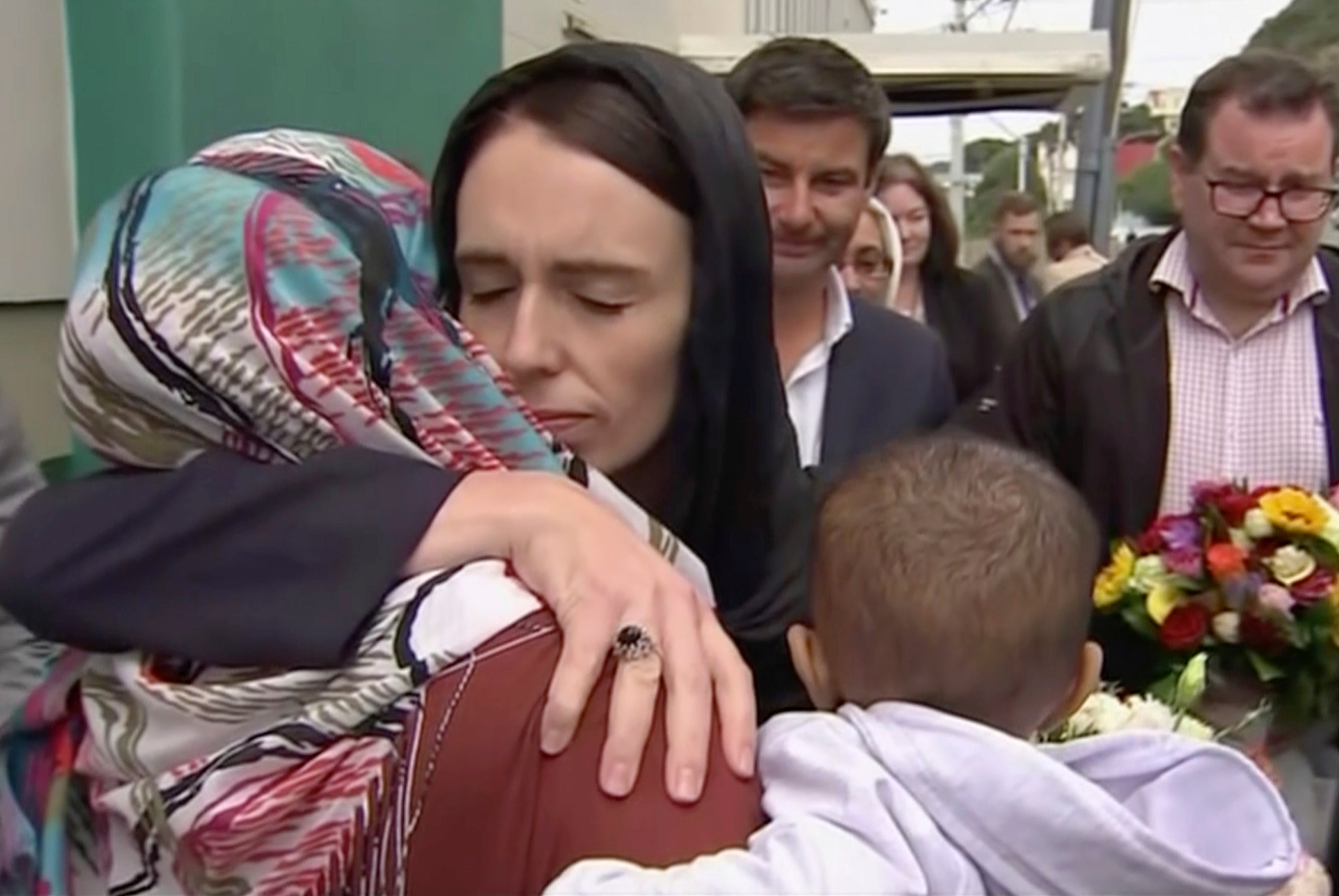
New Zealand prime minister Jacinda Ardern shocked the world with her resignation announcement on Thursday morning, saying she no longer has “enough in the tank” to remain as leader.
The 42-year-old said she planned to stand down next month, saying she was too tired to seek a third term.
“I am human. We give as much as we can for as long as we can and then it’s time. And for me, it’s time,” she said at a meeting of members of her Labour Party on Thursday in an emotional announcement.
She referred to her term in office as the “most fulfilling five-and-a-half years of my life”.
Ms Ardern became the world’s youngest female head of government when she was elected prime minister in 2017 at the age of 37.
Identifying as a feminist, Ms Ardern is the third woman PM New Zealand has had and was known for breaking stereotypes.
She became the second elected world leader to ever give birth while in office, after Pakistan’s Benazir Bhutto in 1990. In 2018, she gave birth to a baby girl with her longtime partner, television presenter Clarke Gayford.
Known for her empathetic and no-nonsense approach to politics, Ms Ardern was often referred to as a “celebrity politician” who invited as much press attention overseas as she would at her home.
Since her election in 2017, it seemed Ms Ardern had one crisis after another to deal with. The way she handled the Covid-19 pandemic, the Christchurch shooting and the economic crisis, earned her a distinct reputation not just in New Zealand but around the world.
“It’s one thing to lead your country through peace time, it’s another to lead them through crisis,” she said, talking about her term.
“These events... have been taxing because of the weight, the sheer weight and continual nature of them. There’s never really been a moment where it’s ever felt like we were just governing.”
In 2020, as the Covid-19 pandemic began to wreak havoc around the world, Ms Ardern swiftly ordered to close down New Zealand’s border and imposed lockdown measures. She said the new rules will mean New Zealand has the “widest ranging and toughest border restrictions of any country in the world”.
New Zealand’s Covid handling won praise all-around the world as the country emerged out of the worst phase of the pandemic better than most western nations.
Ms Ardern emerged as somewhat of a crisis management guru, holding regular briefings with the media and winning praise for what was referred to as a “masterclass in crisis communication” by many.
In March 2019, in the aftermath of the Christchurch mosque shootings, Ms Ardern reacted by rapidly introducing strict gun laws, winning her a distinct status in a world where gun violence and hate speech have been on rise.

Known as a progressive politician, Ms Ardern contrasted with contemporary world leaders, and was often seen as an “antidote to Trumpism”.
Throughout her term, Ms Ardern spoke vociferously in favour of climate action and against capitalism. In 2020, she declared a climate change emergency in New Zealand and pledged that the government would be carbon neutral by 2025 in a parliamentary motion.
Her actions translated into a landslide victory for Labour in 2020, getting Ms Ardern an unprecedented parliamentary majority in what was seen as an endorsement of her policies amid a historic crisis.
However, as her popularity grew overseas, her party also faced some challenges at home with opinion polls in recent months beginning to show a weakened domestic enthusiasm for Ms Ardern.
But Ms Ardern still remains one of the strongest political figures in the country.
Joining politics at the age of 17, Ms Ardern was recruited by her aunt Marie Ardern, a longstanding member of Labour Party, to campaign New Plymouth MP Harry Duynhoven in the 1999 general election.
She graduated from University of Waikato in 2001 with a degree in Bachelor of Communication Studies in politics and public relations, and remained associated with political and social organisations.
Attending a semester in the US and working as a researcher in her early years, Ms Ardern also served as a senior policy adviser in an 80-person policy unit of British prime minister Tony Blair in early 2000s.
While she never met Mr Blair while she was employed, she reportedly questioned him about the 2003 invasion of Iraq in her meeting later in 2011.
Her rise in politics was also swift since she first became the youngest member of parliament at the age of 28 in 2008. She contested elections unsuccessfully from Waikato but became a member of the parliament after ranking 20th on the Labour’s Party List.
After serving three terms, she also briefly assumed the position of leader of the Labour Party, and consequently became leader of the Opposition, following the resignation of Andrew Little.
In her resignation speech, Ms Ardern said she hoped New Zealanders would remember her “as someone who always tried to be kind”.
“I hope I leave New Zealanders with a belief that you can be kind, but strong, empathetic but decisive, optimistic but focused. And that you can be your own kind of leader - one who knows when it’s time to go,” she said.







